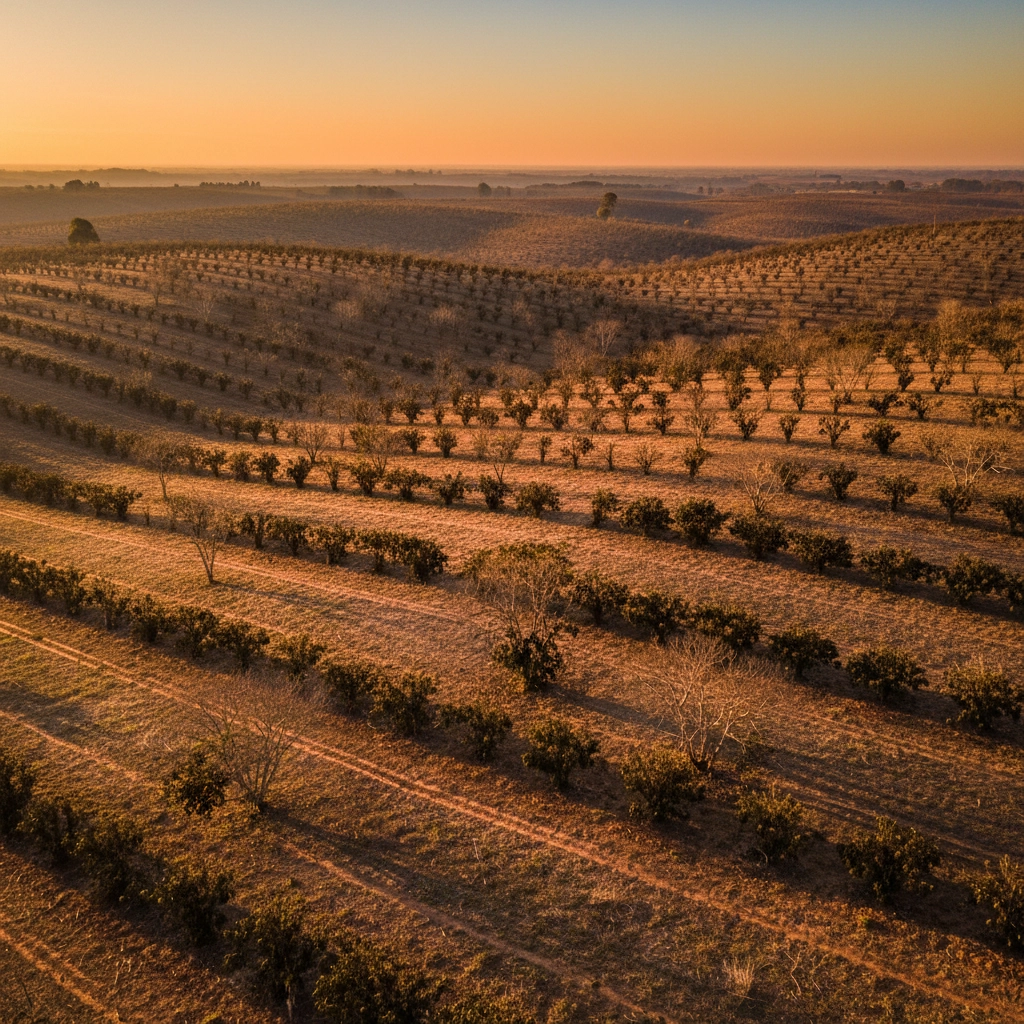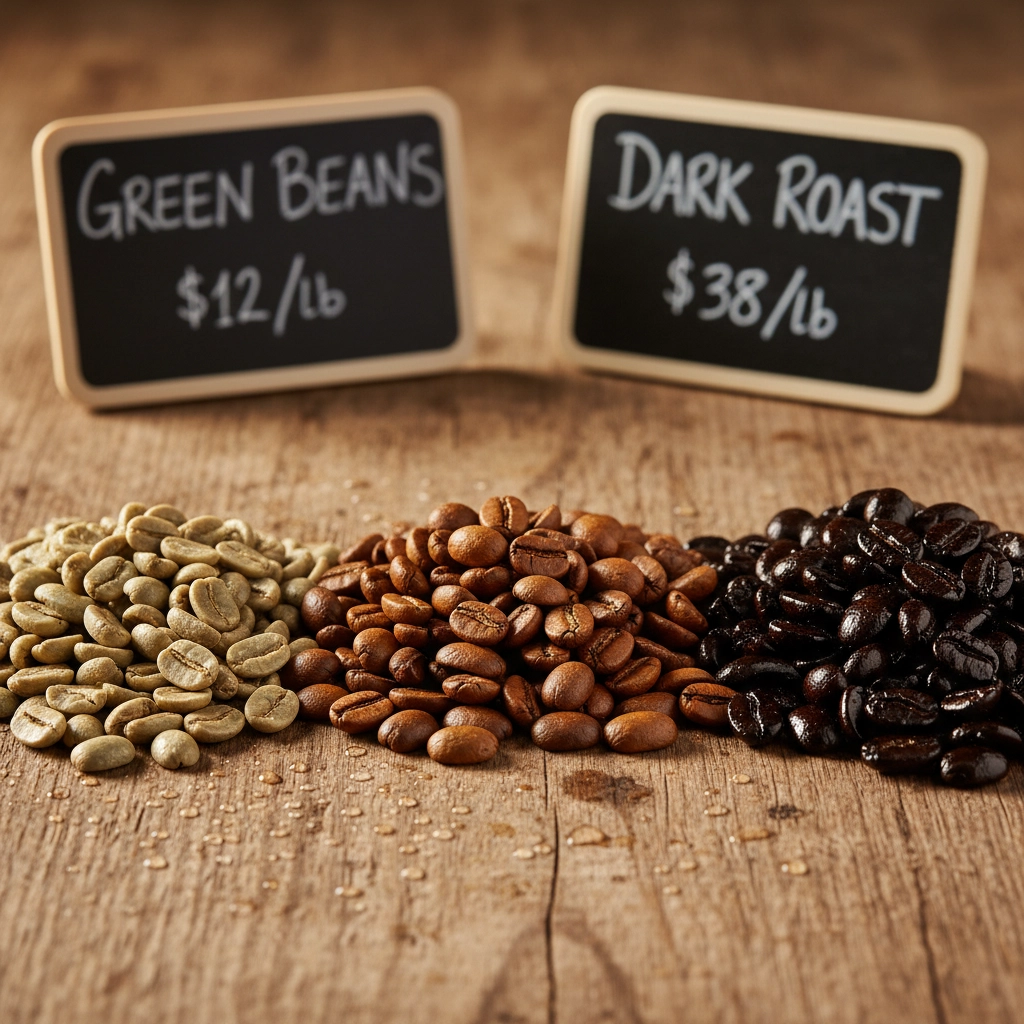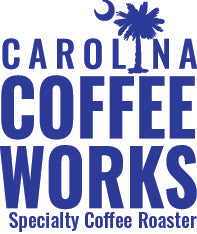Let's cut to the chase: if you've been wondering why your favorite specialty coffee costs more these days, you're not imagining things. Coffee prices have skyrocketed in 2025, and it's hitting specialty coffee harder than anything else on the market.
As someone who's been roasting coffee in Charleston for over 13 years, I've seen price fluctuations before. But what's happening right now? This is different. This is what industry folks are calling a "perfect storm," and it's not going away anytime soon.
Here's the straight talk on why you're paying more for quality coffee: and why it's probably going to stay that way for a while.
The Climate Reality Nobody Wants to Talk About
The biggest driver behind rising coffee prices isn't some Wall Street conspiracy or corporate greed: it's Mother Nature throwing a tantrum across the world's coffee-growing regions.
Brazil produces about one-third of the world's coffee. In 2024 and into 2025, they've been hammered by severe droughts followed by unexpected frost. The result? Their coffee exports dropped 11.3% by December 2024. When the world's largest coffee producer suddenly can't deliver what they promised, prices go up. Fast.

But Brazil isn't alone. Vietnam, which grows most of the world's robusta beans (the stuff that gives your espresso its kick), saw exports plummet by 39.5% due to drought. Indonesia's production fell 16.5% because of too much rain damaging crops. It's like every major coffee region got hit with exactly the wrong weather at exactly the wrong time.
This isn't just a bad year: we've now had four consecutive seasons of production deficits. Climate change is making coffee-growing regions less predictable, forcing farmers to move to higher elevations where costs are significantly higher. The simple truth? The places where coffee grows best are becoming harder to farm.
The Tariff Factor
In early 2025, the U.S. slapped new tariffs on coffee imports, including a 10% duty on Brazilian beans. I know trade policy sounds boring, but here's why it matters to your coffee cup: every time the government adds a tax at import, that cost gets passed down the line: from importers to roasters like us, and eventually to you.
These tariffs don't just increase prices; they create uncertainty. When roasters don't know what trade policies might change next month, we have to factor that risk into our pricing. It's not ideal for anyone, but it's the reality we're dealing with.
Market Speculation Isn't Helping
Coffee is traded as a commodity on futures markets, just like oil or wheat. When traders hear about drought in Brazil or new tariffs, they start buying up contracts betting that prices will rise. Sometimes they're right, sometimes they're not: but their bets affect prices before the actual shortages hit.

This speculation adds another layer of volatility. Even when there's enough coffee physically available, if traders think there won't be enough next month, prices can jump. It's frustrating, but it's how global commodity markets work.
The Numbers Don't Lie
Let me give you the hard numbers so you understand just how dramatic this price surge has been:
- Arabica coffee hit $3.48 per pound in January 2025: that's a 79% increase from the year before
- Ground roast coffee reached $7.25 per pound
- Wholesale arabica prices doubled to $4.30 per pound
- Robusta coffee is at its highest price in nearly five decades
- Overall, coffee prices have jumped almost 50% since early 2024
These aren't small adjustments. These are massive market shifts that ripple through every part of the coffee supply chain.
Why Specialty Coffee Gets Hit Hardest
You might wonder why specialty coffee seems to be affected more than the stuff you find at the grocery store. There are a few reasons for this.
First, specialty coffee relies on specific, high-quality beans from particular regions and farms. When climate issues hit these areas, we can't just swap in cheaper alternatives without completely changing the product. The Ethiopian single-origin you love can't be replaced with generic commodity coffee: it would be a completely different drink.

Second, specialty roasters like Carolina Coffee Works are committed to paying fair prices to farmers. When production costs go up for farmers due to climate challenges or having to move to higher elevations, we honor those increased costs rather than pressuring farmers to sell at unsustainable prices. This is the right thing to do, but it does mean our costs rise along with theirs.
Third, the supply chain for specialty coffee is more complex. We're not buying generic coffee by the container load: we're sourcing specific lots, often working directly with farms or cooperatives. This more careful sourcing process naturally costs more, especially when global logistics are strained.
What This Means for Coffee Lovers
I'm not going to sugarcoat this: if you're a specialty coffee drinker, you should expect to keep paying more for the foreseeable future. Industry experts predict these elevated prices will continue throughout 2025, with potential relief only coming if major producing regions have successful harvests.
But here's the thing: quality coffee has always been worth paying for, and that's even more true now. When prices are high across the board, the difference between good coffee and great coffee becomes more important, not less. You're going to pay a premium either way; you might as well get something worth drinking.
How Carolina Coffee Works Is Handling the Situation
At Carolina Coffee Works, we're not thrilled about raising prices any more than you are about paying them. But we're committed to being transparent about why costs have gone up and maintaining the quality and ethical sourcing that our customers expect.
We're not cutting corners or switching to lower-quality beans to keep prices artificially low. Instead, we're working even more closely with our suppliers to ensure we're getting the best possible value while still paying fair prices to farmers. We're also exploring new sourcing relationships to diversify our supply and reduce our vulnerability to regional climate issues.

Our roasting process remains the same meticulous, small-batch approach we've always used. When coffee costs more, the last thing you want is for that expensive coffee to be poorly roasted.
What You Can Do as a Coffee Buyer
Here's some practical advice for navigating these higher prices:
Buy what you'll actually drink. With prices this high, letting coffee go stale is more expensive than ever. Buy smaller quantities more frequently to ensure freshness.
Consider trying different origins. Some regions have been less affected by climate issues than others. We're always happy to recommend alternatives that might offer better value while still delivering excellent quality.
Invest in proper storage. Keep your coffee in an airtight container away from light and heat to maximize its lifespan and get full value from your purchase.
Don't compromise on quality to save a few dollars. If you're going to pay premium prices regardless, make sure you're getting premium coffee. Buying mediocre coffee at slightly lower prices isn't really saving money if you're not enjoying what you're drinking.
The Long-Term Outlook
Nobody has a crystal ball, but most industry analysts expect coffee prices to remain elevated for at least the next 12-18 months. The climate issues affecting major producing regions aren't going away quickly, and it takes time for new plantings to mature and come into production.
The good news? High prices tend to incentivize increased production over time, as farmers invest in expanding or improving their operations. The bad news? Coffee plants take 3-5 years to mature, so relief from increased production is still years away.
Bottom Line
The reality is that coffee prices have risen dramatically due to a combination of climate challenges, trade policies, market speculation, and supply-demand imbalances. These aren't temporary factors that will disappear next month: they represent fundamental changes in how the global coffee market operates.
As specialty coffee buyers, you have a choice: you can be frustrated by the higher prices, or you can understand that paying more for quality coffee supports sustainable farming practices and ensures that the farmers growing your coffee can continue doing so despite increasingly challenging conditions.
At Carolina Coffee Works, we believe that good coffee is worth paying for, especially when that payment supports the entire supply chain from farm to cup. The price increases aren't fun for anyone, but they're necessary to maintain the quality and sustainability that specialty coffee represents.
The straight facts? Coffee costs more now, and it's going to keep costing more. But great coffee is still great coffee, and in uncertain times, there's something to be said for starting your day with a cup of something truly excellent.

